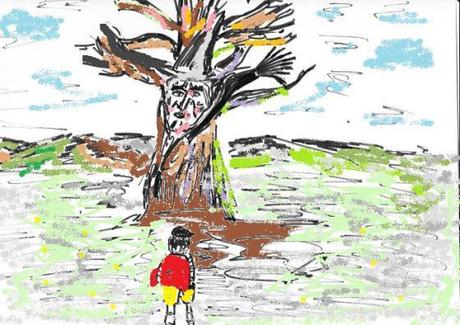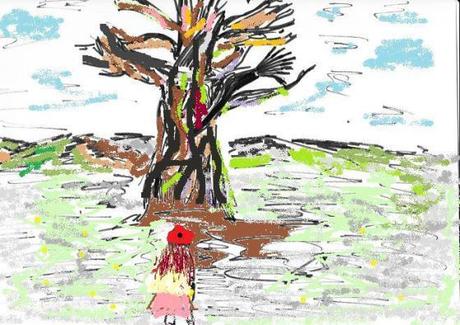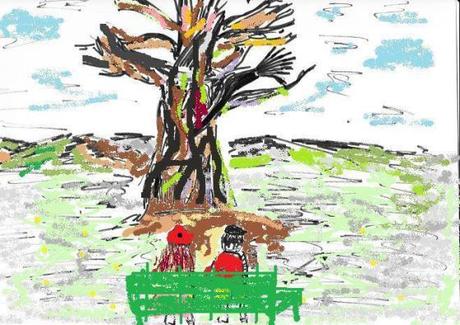
Language is not innocent, it determines how reality is interpreted. Words create logic bubbles that are difficult to escape from. The way we use words may prevent us from finding solutions, restrict new ideas, and lead to wrong public policies.
In this blog post we will try in a simple way to explain how thinking patterns are created.

Image a boy, looking at an old tree. His grandmother told him that old trees might at sunset turn into an old woman who will take him away. As a consequence of this accepted worldview, the boy always returns home before it gets dark.
There is no problem, this arrangement works fine as long he is alone. But in many stories, as in the real world, a nice girl comes along.

She was told by her granddad that old trees are perfect play-sets. As a consequence of this agreement to assign meaning to the world, whenever she spots a tree she runs towards it and starts climbing to the top.
As long she is alone in the world, appointing trees as play-sets trees works well for her. However, she meets the boy and they will both coordinate their behavior and actions,. As a result of this meeting, they must reach consensus about what a tree is all about. They have to negotiate the definition of the tree in order to make sense of the situation.

If it is agreed that the old tree is an old ugly woman, who takes young boys away from their parents at sunset, the logical consequence of this agreement is to run away before it gets dark.
If it is agreed that the old tree is a marvelous play-set, the logical consequence of that shared meaning is to run towards the tree and play, perhaps by dangerously climbing into it.
If it agreed that the tree is a wonderful phenomena of nature, the logical consequence of that logic bubble is to sit down and to study the tree carefully as a natural monument, as visitors of a museum.
The message of this story is that the world is actively enacted individually. Essentially, there is no such thing as an objective world. There are only interpretations of it, perceptions. The world is inter-subjective defined as contrary like passively seeing a movie. Meaning is actively constructed.
If coordination of behavior is necessary, as in companies, families, states is, there should be consensus attained about the definition about a situation. It is to be realized that an agreed definition of the situation is interactive of nature, and therefore, as soft as butter. Thus, changeable by default.
However, it is very tiring and annoying to constantly have discussions about how to interpret the meaning of a tree. The agreement how to interpret the tree becomes routinized, not any longer available for reflection and critique. And the agreed meanings about how to interpret the tree leads to behavioral consequences: running towards the tree, or just the other way, or laying in the grass to admire it.
Once agreement is reached about how to define a situation , behavioral consequences will automatically evolve as a result. Thus,unchangeable and hard as steel.
Compare the definition of an “unemployed” with that of “someone looking for work”. Or “ someone who is not able to pay his social security” with “a defaulter, someone who is not paying his social security”. The policy consequence (or even political) of each definition is very different.
If you are floating on a raft after a shipwreck, and you are not able to redefine a spoon as a paddle, you are in serious problem.
As the choice of wording confines the solution or idea space, it is very important to give sufficient attention to it, in particular during the stage of problem formulation. Language is not innocent, it defines the outcome of thinking.
The main concepts as told above are to be found in the theories of Cognitive psychology, Intersubjectivity, Symbolic Interactionism and Sense making.
Go here to look at our new eBook.
Photo: “Deep Forest” by dan
